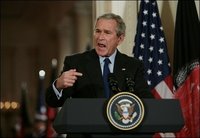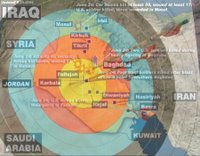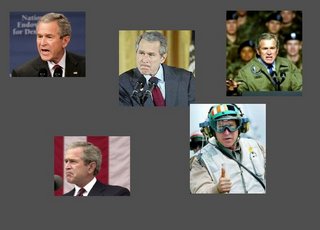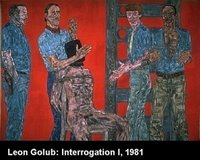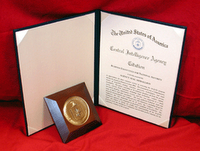 Rumsfeld is not the only one peddling fanstasies on Afghanistan--NPR is pretty good at it too (see previous post of 13 Sept. 06 ). This morning Renee Montagne reports from Afghansitan. Steve Inskeep introduces the piece with this bit of news from the land of make believe: "In the five years since an American-led coalition drove out the Taliban, a lot has improved in Afghanistan. Five times more children are in school, a third of them are girls. A paved highway connects Kabul to Afghanistan's other big cities -- Kandahar in the south and then Herat in the west. A president and a parliament have been elected and for a time the Taliban were gone...." This ignores a history of trouble in Afghanistan (war criminals in the government, negligence way back in 2004, US torture at Bagram, etc.).
Rumsfeld is not the only one peddling fanstasies on Afghanistan--NPR is pretty good at it too (see previous post of 13 Sept. 06 ). This morning Renee Montagne reports from Afghansitan. Steve Inskeep introduces the piece with this bit of news from the land of make believe: "In the five years since an American-led coalition drove out the Taliban, a lot has improved in Afghanistan. Five times more children are in school, a third of them are girls. A paved highway connects Kabul to Afghanistan's other big cities -- Kandahar in the south and then Herat in the west. A president and a parliament have been elected and for a time the Taliban were gone...." This ignores a history of trouble in Afghanistan (war criminals in the government, negligence way back in 2004, US torture at Bagram, etc.).Renee Montagne then glowingly descibes the "victory" of NATO forces over the Taliban in Southern Afghanistan: "...in fact last month Taliban fighters dared to take a stand against Canadian troops under NATO command and fight them in a conventional way. NATO says it killed more than 500 of those Taliban fighters. It’s generally regarded here as a big victory for NATO...." I wonder how Montagne confirmed the number of those killed and how many were civilians. It seems that a top British soldier has left Afghanistan with a little different take on things. I noticed that the Guardian, in reporting on the death toll, noted "the toll cannot be verified as the battle zone is closed to reporters and the Taliban often bury their dead within hours."
It seems NPR , like the Bush administration, isn't going to let facts or the lack of them, get in the way of telling a good story. In fact if the victories keep coming like they report them, I think I see a use for the 20 million dollar victory funds recently approved by congress!




